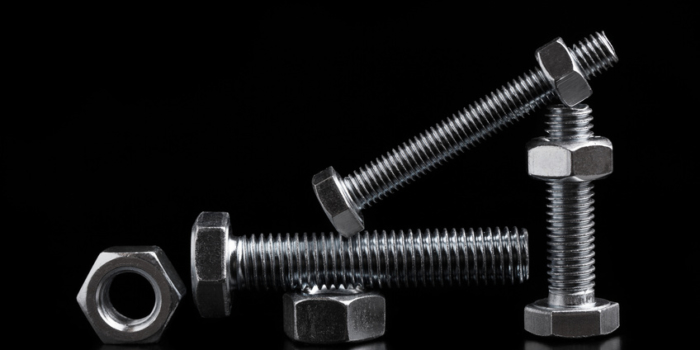Did you know that more than 200 billion fasteners are used in the U.S. every year? With demand so high, the screw, nut, and bolt industry is certainly booming. However, there are more than just those three types available to choose from; if you’re unsure whether to turn to custom shoulder bolts or custom screws for your next project, finding the answer can be trickier than you’d expect. Today, we’re going to focus on bolts in particular and answer the most frequently asked questions regarding the colossal category. Here are a few common Bolt FAQs:
Check out our EZ Screw Builder to build your custom screw!
What are the marks shown on the head of a bolt?
Generally speaking, the head of a bolt contains two types of marks: the manufacturer’s mark and the grade mark. The former identifies the manufacturer or importer; they are the ones who accept the responsibility that the fastener meets specified requirements. The grade mark is a standardized mark that identifies the material properties that the fastener meets.
I can’t find the shear strength of a fastener in the specification, can you help?
Bolted shear joints can be designed as friction grip or direct shear. With friction grip joints, you must guarantee that the friction force developed by the bolt is enough to prevent slipping between the plates, thereby compromising the joint. With direct shear joints, the shank of the bolts sustains the shear force directly, which gives rise to a shear stress in the bolt.
What are the benefits of fine threaded fasteners over coarse threaded fasteners?
Traditionally, a coarse thread is specified unless there is another reason a fine thread would be used. Size for size, a fine thread is stronger than a coarse thread, both in tension and shear. Fine threads also have less tendency to loosen because the thread incline is smaller; at the same time, the smaller pitch allows for finer adjustments in applications that require such a feature.
Does it matter whether you tighten the bolt head or the nut?
Short answer: it depends. Assuming that both the bolt head and nut face are of the same diameter, and that the contact surfaces are the same, you can torque either one. If they are different, it will matter.
The next time you need a custom shoulder bolt, an anchor bolt, or any of the other types of bolts available, you’ll have the knowledge needed to be successful in your endeavor. At the very least, we hope you learned something new here today!

